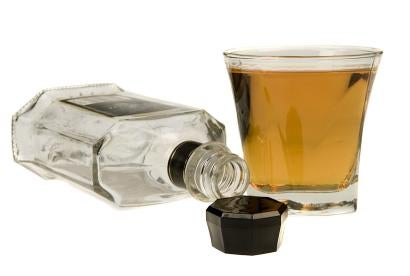June 14th is National Bourbon Day, so it’s a nice time to highlight the resolve of the recent class action lawsuit filed against Maker’s Mark, one of America’s favorite whiskeys, by two consumers who said the company falsely advertised its product as “handmade.”
The suit seized on the word “handmade” used in Maker’s Mark advertising, claiming consumers had been misled. U.S. District Judge Robert Hinkle ruled on behalf of Maker’s Mark, stating that “no reasonable person would understand ‘handmade’ in this context to mean literally made by hand.”
This case is representative of an increasingly common national trend. Similar suits have recently been filed against Tito’s Handmade Vodka and Jim Beam Bourbon.
Consumer advocates say that these class action lawsuits are the most effective way to hold companies accountable for what they allege to be misleading marketing. But real-life consumers, those the litigation is supposed to protect, are often harmed as defendants’ legal costs and sometimes multimillion-dollar verdicts or settlements are passed on in the form of higher prices and fewer choices.
So all across the country, state policymakers are rethinking and reforming their respective consumer protection acts (CPAs) to their original mission of preventing and punishing truly deceptive business practices.
Most state CPAs were modeled on the Federal Trade Commission Act when they were first enacted in the 1960s and 1970s. But since then, many of these laws have come to include expansive amendments and judicial interpretations that now allow lawsuits like the one aimed at Maker’s Mark.
Emory University law professor Joanna Shepherd’s white paper, Consumer Protection Acts or Consumer Litigation Acts?, was published last year and demonstrates this devolution. It begins with the origins of the federal law a century ago when “Congress first sought to define and deter” a “new class of consumer harms” that arose as “the merchant-consumer relationship” evolved rapidly, along with new products and services, retail models, and credit-based payment systems. “Unfair and deceptive acts or practices in or affecting commerce” were prohibited by the broadly worded new law.
But to prevent litigious mischief, Congress purposely limited enforcement of the law to its newly created FTC, prohibiting private lawsuits out of fear that “a certain class of lawyers” would otherwise “arise to ply the vocation of hunting up and working of such suits,” the number of which “no man can estimate,” warned Sen. William J. Stone (D-MO) prior to the act’s 1914 passage.
Fifty years later, the states were no longer willing to leave consumer protection entirely to the federal government. Eventually all 50 states and the District of Columbia adopted their own consumer protection statutes and authorized state attorneys general to enforce them.
By the 1980s, however, many state CPAs were being expanded well beyond their original scope. No longer were these laws enforced primarily by state attorneys general seeking injunctive relief in the public interest. Now they permitted and even promoted private lawsuits seeking significant awards for sometimes theoretical damages and inflated attorney’s fees. Incredibly, some plaintiffs no longer have to prove injuries, demonstrate that they relied on allegedly deceptive representations, or even behaved reasonably in order to prevail in lawsuits.
But here’s to judges like Judge Hinkle who require plaintiffs to explain precisely how they were misled by innocuous advertising terms like “handmade.” And here’s to those state lawmakers working to refocus their consumer protection laws in the interest of consumers who were truly misled into making a purchase and suffered an actual injury as a result.
Happy National Bourbon Day, everyone.




 />i
/>i
